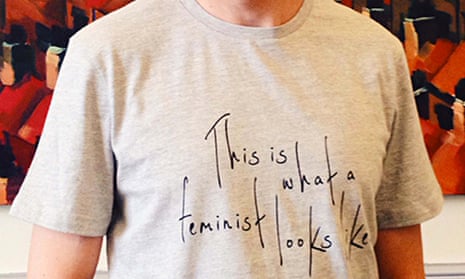The women’s rights charity behind the “This is what a feminist looks like” T-shirts worn by politicians including Harriet Harman and Ed Miliband has rejected claims that the garments were made in a sweatshop.
The Mail on Sunday reported that the shirts were being made by female workers in Mauritius who were paid just 62p an hour.
However, the Fawcett Society said it had seen “expansive and current evidence” from the retailer Whistles that the factory owned by Compagnie Mauricienne de Textile (CMT) where the shirts were made conformed to ethical standards. They were designed and produced by the fashion chain, in collaboration with Elle magazine, and sell for £45.
Eva Neitzert, deputy chief executive of the society, said: “The evidence we have seen categorically refutes the assertion that the ‘This is what a feminist looks like’ T-shirts produced by Whistles were made in a sweatshop. An audit into the CMT factory was carried out in October 2014 by an independent not-for-profit organisation and this did not reveal any material concerns on the working conditions, the welfare or the health and safety of workers.”
Nevertheless, she said, Fawcett was working with an international trade union body to examine the evidence so they could be “absolutely assured of its provenance, authenticity and that all findings are robust and factual”.
The charity would continue to work with Elle and Whistles on the project.
According to the Fawcett statement, there was evidence that:
All workers were paid above the official minimum wage and that their wages reflected their skills and years of service.
The standard working week was 45 hours, and workers were paid for any overtime.
Workers could join a union and there was a union presence at the factory.
Staff turnover levels were low and workers were offered training and development.
Whistles said in a statement that it was committed to ethical sourcing policies and demanded the highest standards from its suppliers, carrying out regular audits of them, including unannounced visits and independent audits.
A company statement said: “Whistles will continue to work with CMT to review the pay and work conditions at their factory. We are taking this opportunity to undertake additional reviews of all our suppliers.”
Lorraine Candy, editor-in-chief of UK Elle, said: “Based on a detailed and current independent audit of the factory where the T-shirts were made, that we have seen today, we are confident that their production conforms to ethical standards.”
Neitzert said on Sunday that the society had originally been told that the shirts would be produced ethically in the UK. When samples were received in early October they noted that they had been made in Mauritius.
Laura Harvey, lecturer in the sociology of media at the University of Surrey, criticised the newspaper’s report. “It was a cynical political move against an important feminist campaigning organisation. If the Daily Mail really cares about workers’ rights why aren’t they running stories about the garment industry more widely and the campaigns to improve worker’s rights?” she told the Guardian.
Harman wore one of the shirts during prime minister’s questions in the Commons to embarrass David Cameron after he refused to wear one, unlike Miliband and the Lib Dem leader, Nick Clegg.






